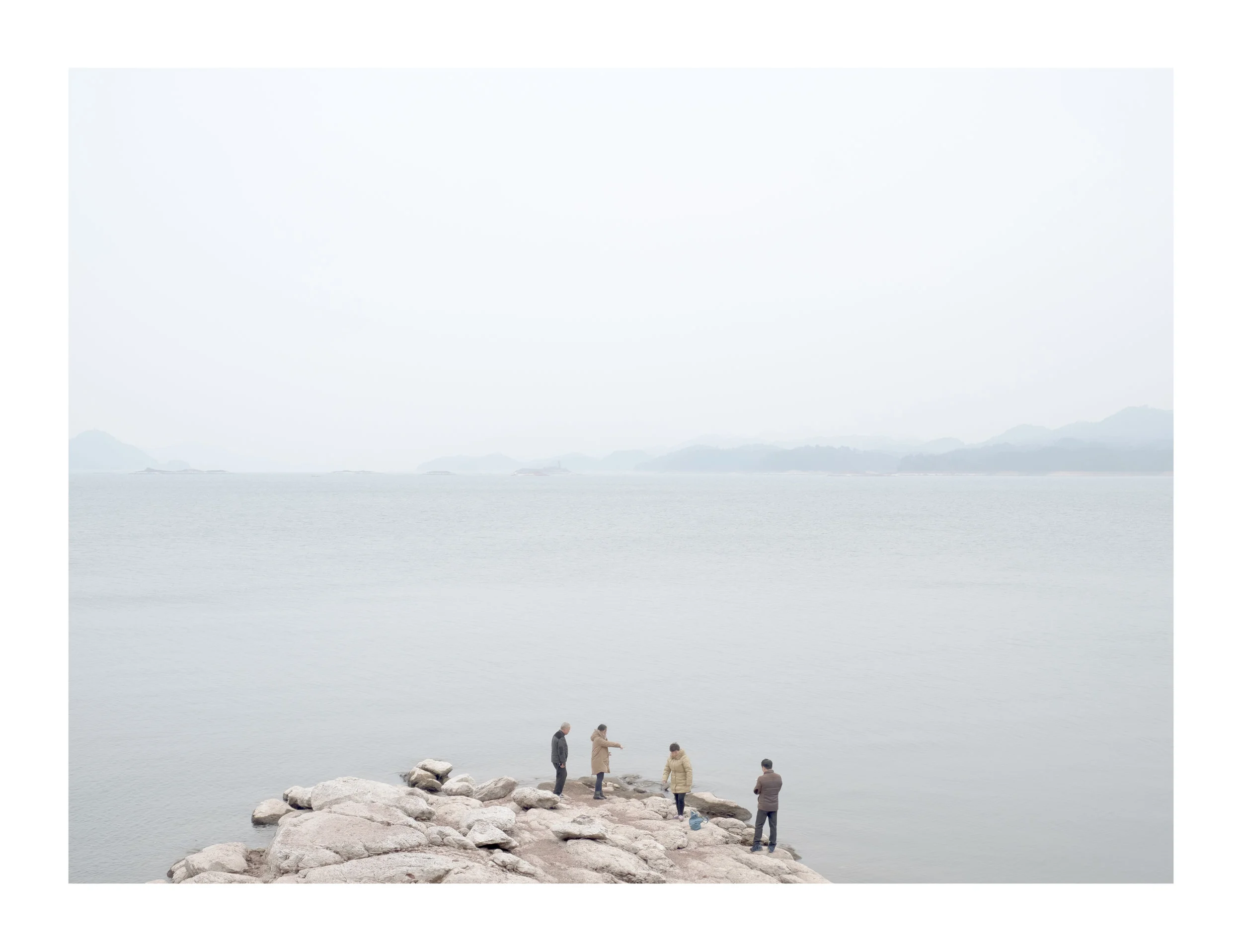I have become aware of the fact that, hitherto, I have lived my life while consciously ignoring all things unpleasant to me. In doing so, I have constructed a personal utopia for myself and spent my days within it.
For centuries, humankind has maintained idealistic, utopian visions and strived toward their realization. In contrast, is it not the case that current utopia is no longer defined as an Ideal Land that human beings jointly pursue, but rather something whose form varies from person to person—an individual space in which people live and consume? As it were, utopia today takes the form of “private utopias.” As individuals immerse themselves within such utopias, the modern landscape is also changing accordingly. When the originally unified vision fissured into countless private utopias, gaps appeared between them—gaps into which people subconsciously dispose of all the things that they do not wish to see, the things that impede the formation of their private utopias. Through this, these gaps that exist outside of private utopias began to form landscapes that have yet to be “handled” or “controlled.”
On the internet and social media, private utopias seem to be spiraling in similar ways. With the influence of platforms such as Instagram, a dependence on “information that does not require thinking” formed among us. Is it not growing more and more extreme?
In this information age of increasing globalization, it appears that similar-looking landscapes are materializing everywhere without distinction of location or country. I therefore set out to various places over the past four years and, when coming across such landscapes in the gaps between utopias, attempted to document them.
私はこれまで、自分が不愉快な物事を無意識的に無視して生きてきたことに気づいた。そしてこの行為が私個人のユートピアを構築して、自分はその中で暮らしてきたのだと。
昔から人間は、ある種理想的、ユートピア的なビジョンを持ち、常にそれを求めてきた。それに対して、現在のユートピアとは、人間が共同で目指す理想郷ではなく、一人ひとりが異なる形式で手にし、その中で暮らし、消費するものなのではないだろうか。いわば「プライベートユートピア」こそが、現在におけるユートピアの姿なのである。人々がそのようなユートピアに没頭する事により、現在の風景にも変化が起きている。本来統一されていたビジョンが無数のプライベートユートピアに変化したことにより、個々のプライベートユートピアの間に隙間が現れた。人々は自分のプライベートユートピアの構成を阻害するもの、自分が見たくないものをそこへ意識せず放置していく。こうしてプライベートユートピア外の隙間に「手入れ」「コントロール」されていない風景が現れてきている。
インターネットやSNS上においても、同じようにプライベートユートピアが渦巻いているように思う。インスタなどの影響により「思考が必要とされない情報」に対する依存症が現れ、さらに極端になっているのではないか?
世界がますますグローバル化しかつ情報化する今日、場所や国を問わずに同様な風景が見えてきているのではないか。そこで私はこの四年間色々な場所へ行き、このようなユートピアの隙間にある風景に立ち会い、記録することを試みた。
至今为止的人生中,我一直在无意识地无视着令自己感觉不愉快的事物。这一行为致使我构建了一个自我空间的乌托邦,而我便一直活在这其中。
自古以来,人类就热衷于构建各种乌托邦的世界观。相比之下,与其说如今的乌托邦是一个人类共同去实现的理想世界,倒不如说是一个因人而异、以不同形式存在的空间——人们可以在其中生活、将其消费的存在。也就是说,当下的乌托邦都是以“个人乌托邦”的形式展现的。在人们沉浸于这种乌托邦的同时,周围的风景也随之改变。本来被统一的乌托邦世界观因此分裂成无数个个体的乌托邦,而个体乌托邦之间产生了空隙——人们把阻碍构成个人乌托邦以及自己不想要看见的事物无意识地放置到这些空隙里。因此,这些空隙呈现了存在于个人乌托邦之外的、没有被“处理”、被“控制”的风景。
网络及社交软件也是以同样形式存在的个人乌托邦。在诸如Instagram的这些软件里,我们是否过分依赖于通过它们来获取“不需要思考的信息”呢?
在世界全球化发展迅速的当下,越来越多相同的风景出现在不同的地点或国家。在这几年间我去了各式各样的地方,企图去记录每一个遇见的个人乌托邦之间的缝隙。













